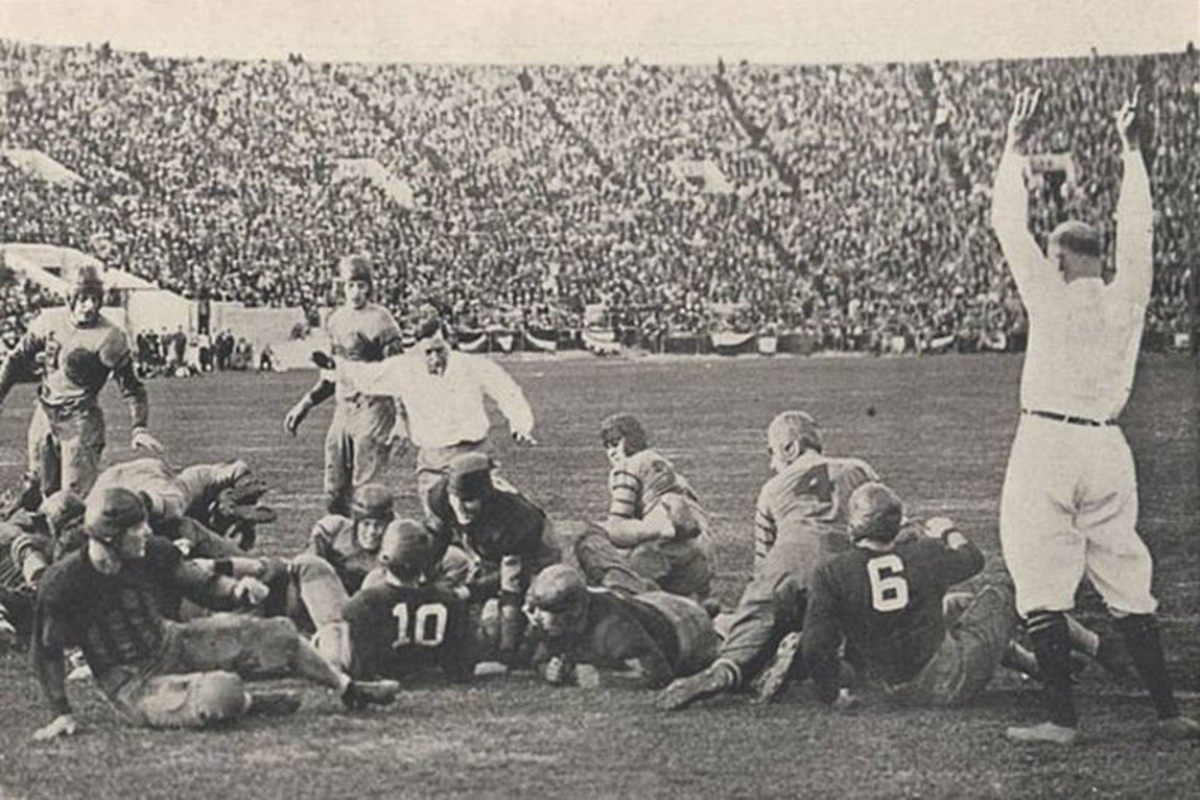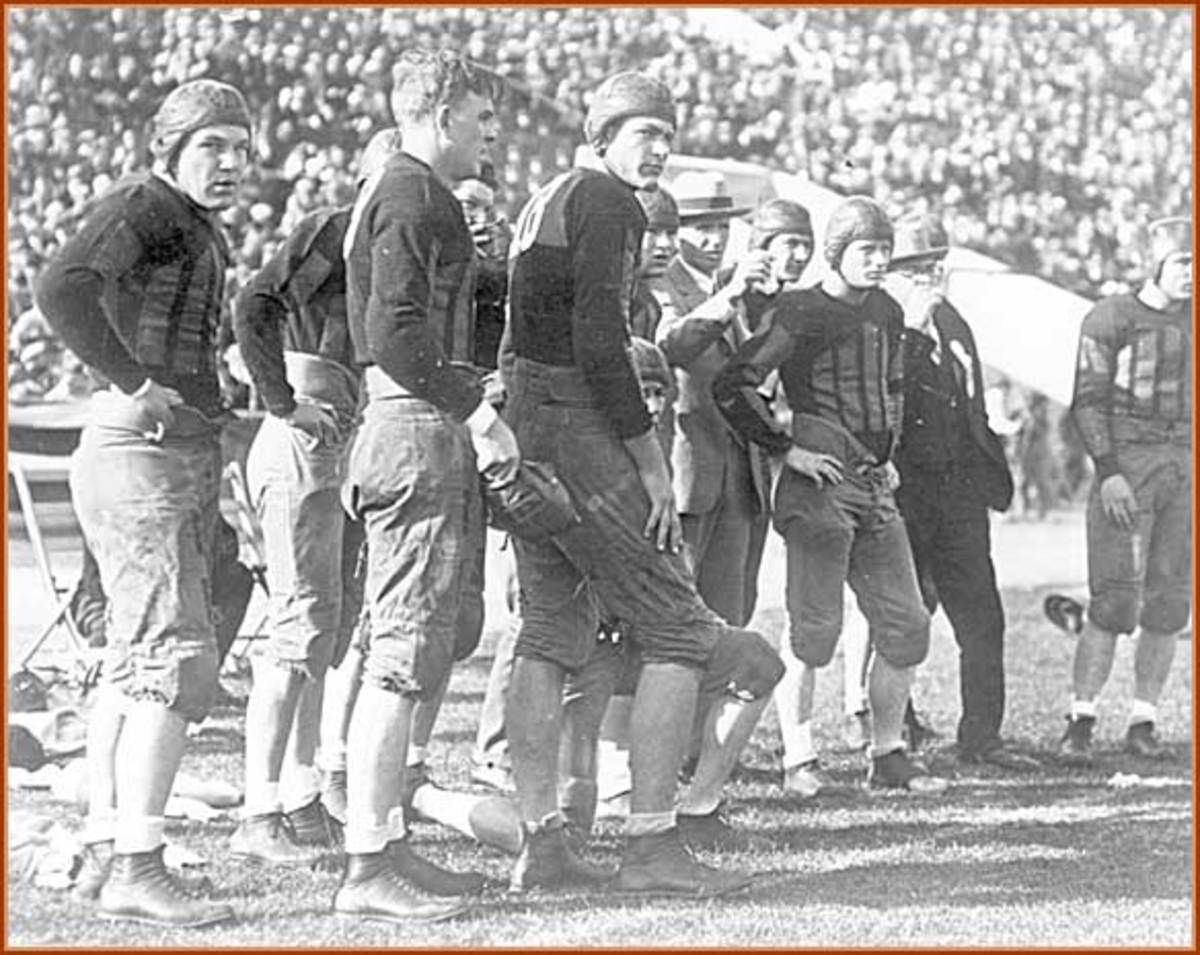Rose Bowl Has Been Alabama's West Coast Home for Nearly 100 Years

When it comes to the Rose Bowl, where the Alabama Crimson Tide will square off against Michigan in a College Football Playoff semifinal on Jan. 1, the Wolverines are better associated with the "Granddaddy of Them All" because they've made the second-most appearances in the game.
Only Southern California has played in more Rose Bowl games, 34, than Michigan, which tops the Big Ten conference with 20.
But Alabama has a much better record in the Rose Bowl, with only one loss over the years. Michigan is 8-12.
Each day as we get closer to the showdown, BamaCentral will profile one of the Crimson Tide's previous games in the Rose Bowl. We'll start where most things often do, at the beginning ...
The first “bowl” game was played in 1902 as part of the Tournament of Roses celebration, held primarily because many of Pasadena’s transplanted residents were looking for an excuse to enjoy the fact that it wasn’t snowing or cold like where they used to live in the East and Midwest.
That first game featured Stanford (3-0-2) against Michigan (10-0), which hadn’t yielded a point all season. Although turnout for the game was favorable, the Wolverines crushed the local favorites, 49-0.
In part due to wounded pride, organizers turned their attention to other sports/activities to serve as a centerpiece event, including polo and chariot races, which failed to hold the same kind of attention. So in 1916, football was back in, with Washington State playing Brown, and pulling off a 14-0 victory.
It wasn’t long until the Rose Bowl became the marquee event of the college football season, and in some ways the de facto national championship. However, for the next ten years no Southern team played in the game, although Georgia Tech turned down an invitation in 1917 because players didn’t want to wait any longer to enroll in the military for World War I.
That changed during the 1925 season, after Alabama, under the direction of Wallace Wade, got off to an 8-0 start while giving up just one touchdown. A pounding 7-0 victory against Georgia Tech set up a showdown with Georgia for the Southern Conference title, which was dominated by Alabama, 27-0.
On hand for that victory were representatives of the Rose Bowl Committee, who left unimpressed and instead extended invitations to Dartmouth, Yale and Colgate, which were all under pressure from the American Association of University Professors to decline. Finally, Alabama received the offer to play heavily favored Washington, which it eagerly accepted, with the entire region rallying behind the Crimson Tide. Even Auburn president Dr. Spright Dowell sent a telegram wishing the team good luck.
After falling behind 12-0 in the first half, the third quarter saw a complete momentum shift after Alabama knocked Washington’s best player, George “Wildcat” Wilson, who finished with 134 rushing yards and completed five passes for 77 yards and two touchdowns, out of the game, and Wade unleashed Pooley Hubert’s ground game.
Hubert punched in one touchdown and Johnny Mack Brown scored on both a 59-yard reception from Grant Gillis and a 30-yard catch from Hubert to give Alabama a 20-12 lead.
“When I reached the three I looked around and sure enough the ball was coming down over my shoulder,” Brown said of Hubert’s pass after being told to run as fast as he could toward the end zone. “I took it in stride, used my stiff arm on one man and went over carrying somebody. The place was really in an uproar.”
Wilson was able to return and led another scoring drive, but Brown’s open-field tackle of him ended the final threat for a 20-19 victory.
Although Alabama had to share the national title with Dartmouth, the result shook the very foundation of college football. It was, and still is by some, considered one of the greatest Rose Bowl games ever played, and a rare moment of pride in the post-Civil War South, which was in desperate need of something to celebrate.

1925-26 Alabama Crimson Tide
10-0, national, Southern Conference champions
Date, Opponent, Location, Result
Sept. 26: Union College, Tuscaloosa, W 53-0
Oct. 2: Birmingham Southern, Tuscaloosa, W 50-7
Oct. 10: LSU, Baton Rouge, W 42-0
Oct. 17: Sewanee, Birmingham, W 27-0
Oct. 24: Georgia Tech, Atlanta, W 7-0
Oct. 31: Mississippi State, Tuscaloosa, W 6-0
Nov. 7: Kentucky, Birmingham, W 31-0
Nov. 14: Florida, Montgomery, W 34-0
Nov. 26: Georgia, Birmingham, W 27-0
Jan. 1, 1926: Washington, Rose Bowl, W 20-19
Coach: Wallace Wade
Outscored opponents: 297-26
Captain: Bruce Jones
All-American: First team — A.T.S. “Pooley” Hubert, quarterback. Second team — Johnny Mack Brown, halfback.
All-Southern Conference: Johnny Mack Brown, back; Bill Buckler, guard; A.T.S. Hubert, back.

Parts of this story originally appeared in 100 Things Crimson Tide Fans Should Know and Do Before They Die.
